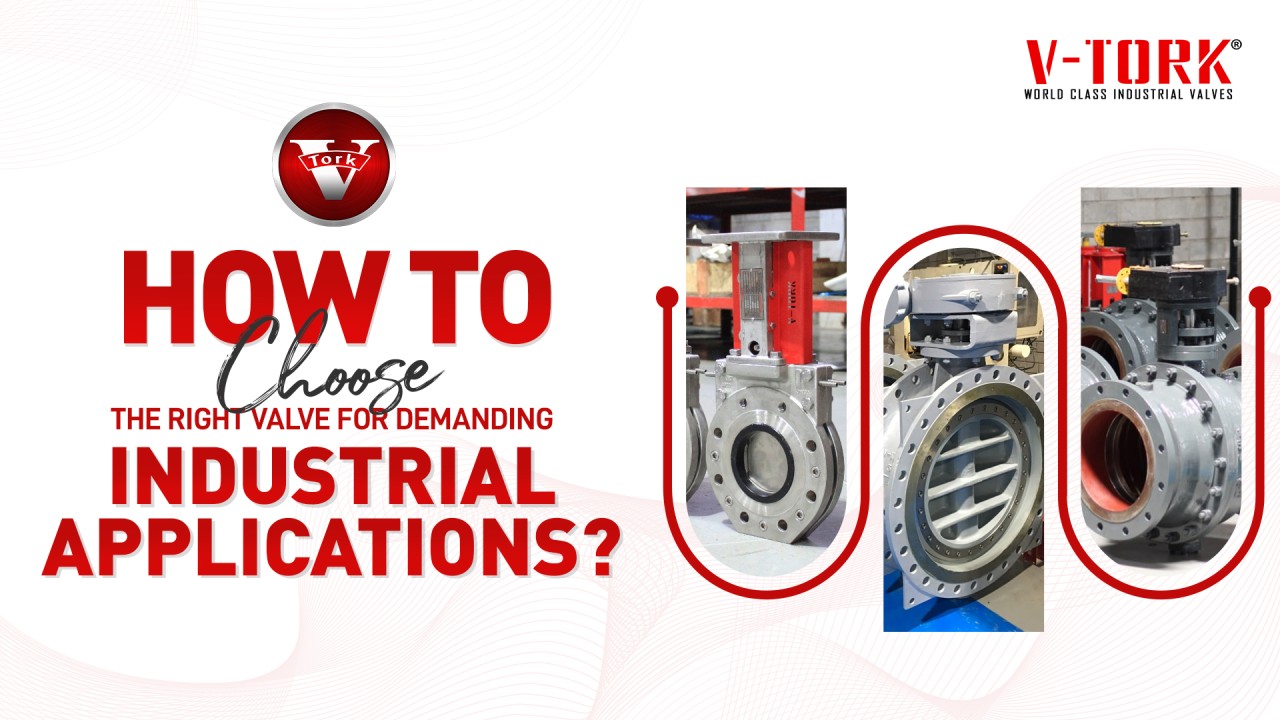
How to Choose the Right Valve for Demanding Industrial Applications?
The Essential Guide for Valve Selection
The industrial world thrives on movement – fluids, gases, and even solids need to be carefully controlled and directed. Industrial Valves play a critical role in this symphony of flow, ensuring smooth operation, safety, and efficiency. But with a vast array of valves available, choosing the right one for demanding industrial applications can feel overwhelming.
This blog post equips you with the knowledge to confidently navigate valve selection and find the perfect fit for your specific needs. We’ll delve into key factors to consider, explore different valve types, and address considerations for harsh environments. Finally, we’ll touch upon the importance of partnering with a reliable valve manufacturer.
Key Factors to Consider When Choosing a Valve
Making the right valve selection hinges on a clear understanding of your application. Here are some crucial questions to answer:
Function: What primary task will the valve perform? Is it for on/off flow control, throttling (regulating flow rate), pressure relief, or preventing backflow?
Fluid characteristics: What are the properties of the fluid being handled? Is it a liquid, gas, or slurry? Consider factors like viscosity, corrosiveness, and potential abrasiveness.
Pressure & Temperature Ratings: What are the maximum pressure and temperature the valve will encounter? Exceeding these ratings can lead to catastrophic failure.
Flow Rate Requirements: What is the expected flow rate? Ensure the valve’s capacity is sufficient to handle the desired flow without creating excessive pressure drops.
Material Compatibility: The valve material needs to be compatible with the fluid and environment to prevent corrosion, wear, and leaks.
Operation & Maintenance: Consider how frequently the valve will be operated and the ease of maintenance. Pneumatic, hydraulic, and electric actuators can simplify operation for remote locations.
Safety Considerations: Think about potential safety hazards associated with the fluid and application. Look for valves with safety features like pressure relief mechanisms or emergency shut-off capabilities.
A Look at Common Valve Types
Now that we understand the key considerations, let’s explore some common Industrial valve types and their ideal applications:
Ball Valves: Simple and versatile, ball valves offer on/off flow control with a rotating ball element. They are suitable for various liquids and gases, especially when low pressure drop and good closure are needed.
Gate Valves: These valves feature a sliding gate for on/off flow control. Ideal for high-pressure applications with slurries or viscous fluids due to their unobstructed flow path when open.
Butterfly Valves: These lightweight Butterfly valves utilize a rotating disc for on/off flow control. They are popular for large-diameter pipelines and low-pressure applications due to their cost-effectiveness.
Check Valves: These one-way valves allow flow in one direction and prevent backflow. They are crucial in applications where backflow could be hazardous or disrupt processes.
Demanding Environments: Considerations for Harsh Conditions
Industrial settings often present challenging environments with extremes of pressure, temperature, and corrosive materials. Here’s what you need to consider when choosing a valve for such applications:
High Pressure & Temperature: Valves need to be constructed with high-grade materials like forged steel or high-temperature alloys to withstand these extremes.
Corrosion Resistance: Exposure to corrosive fluids necessitates valves built with materials like stainless steel or special coatings to prevent material degradation and leaks.
Abrasive Wear: For handling slurries or abrasive materials, valves with erosion-resistant materials and robust designs are essential to minimize wear and tear.
Choosing the Right Valve Manufacturer
While selecting the right Industrial valve is crucial, partnering with a reliable manufacturer is equally important. Seek a company with extensive experience across diverse industrial applications. Their expertise ensures they can recommend the optimal valve solution for your specific needs. Prioritize quality by looking for high-grade materials, robust manufacturing processes, and certifications for pressure, temperature, and material compatibility. Finally, reliable after-sales support guarantees access to technical expertise and spare parts whenever needed. This combination ensures a long-lasting, reliable flow control solution for your demanding industrial applications.
V-Tork Controls: Your Partner in Flow Control Solutions
At V-Tork Controls, we understand the critical role valves play in demanding industrial applications. We offer a comprehensive range of high-performance valves designed to meet the specific needs of various industries.
Our valves are constructed from high-grade materials, rigorously tested, and backed by a team of experts dedicated to providing exceptional customer service. Whether you require ball valves for efficient on/off flow control or gate valves for handling slurries and viscous fluids, V-Tork Controls has the perfect solution for your demanding industrial needs. We are committed to being your trusted partner in flow control, ensuring optimal performance, safety, and efficiency in your operations.